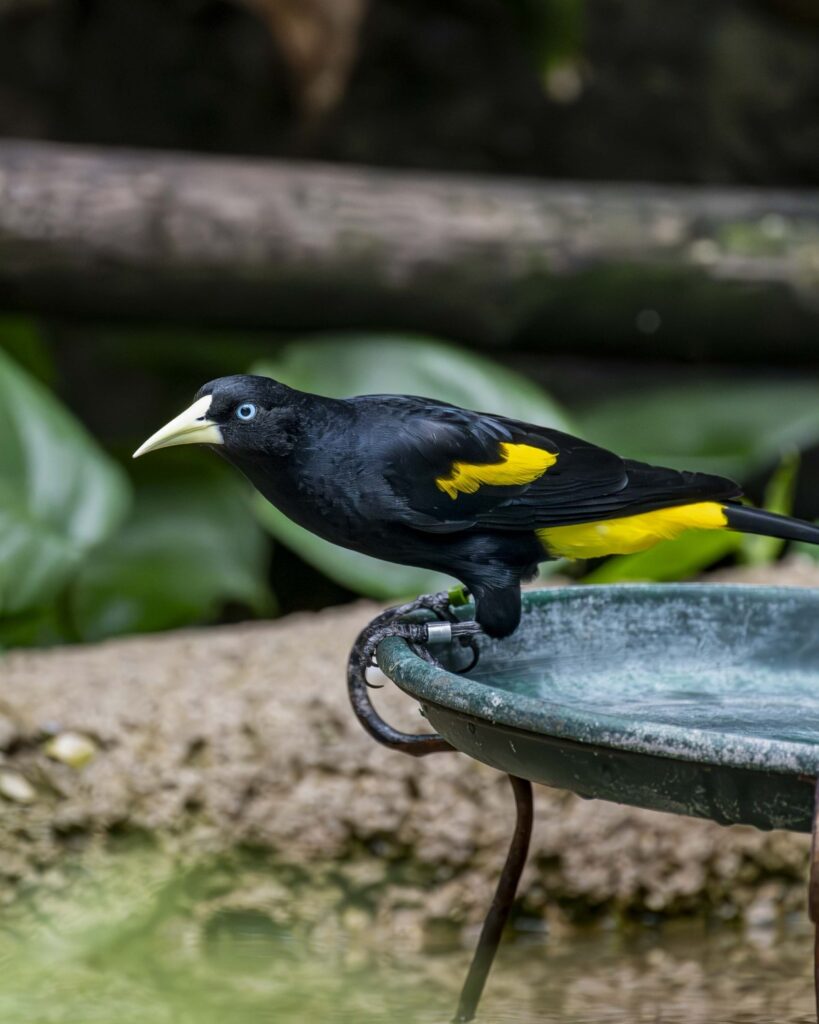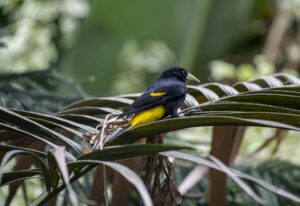
The Milwaukee County Zoo is excited to announce a new species has “flown” into the Herb and Nada Mahler Family Aviary — a male and female yellow-rumped cacique (“ka – seek”). The birds, native to northern South America, arrived from the Fresno Chaffee Zoo and reside in the Aviary’s East Flight habitat.
The birds transferred to MCZ on a breeding recommendation from the Species Survival Plan® (SSP). (The Zoo’s member organization, the Association of Zoos and Aquariums (AZA), oversees the SSP® to ensure genetic diversity across all zoo and aquarium populations.)
Yellow-rumped caciques have a vibrantly colored appearance, with mostly black bodies and bright yellow rumps, undertail, and wing patches. They also have blue eyes. The birds are omnivores and eat a diet of fruits and insects. Adaptations unique to the species include a variety of calls from the male yellow-rumped caciques, which may even mimic other birds when they sing to the females. 
Zookeepers at MCZ comment the new birds have already started building a very impressive nest over one of the ponds in the East Flight habitat. Yellow-rumped caciques build hanging-pouch nests. Keepers say the birds “got right to it, just days after arriving” by taking off strips from the palm fronds to construct the nest. They have also added some new and unique vocalizations to the Free Flight habitat.
Fast Facts:
Be sure to see the new yellow-rumped caciques in the Aviary during your visit. With their boldly colored appearance, they should be easy to spot!
© 2025 Milwaukee County Zoo. All Rights Reserved | Privacy Policy